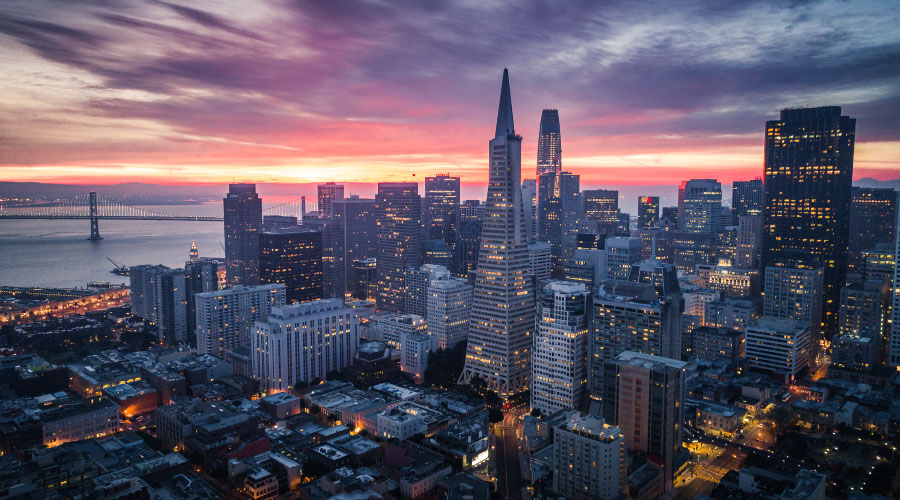
San Francisco recently launched a new safety requirement for tall buildings in response to glass failures in a number of buildings during March’s winter storms. June 7, 2023
Natural disasters — including hurricanes, wildfires, coastal flooding and severe thunderstorms — have become more frequent and severe in recent decades, and the resilience of institutional and commercial facilities is being tested. Recent severe storms inflicted damage on several skyscrapers in San Francisco, and the city’s building owners and managers now face increased scrutiny and responsibilities.
San Francisco recently launched a new safety requirement for tall buildings in response to glass failures in a number of buildings during March’s winter storms. The San Francisco Department of Building Inspection (DBI) now requires accelerated façade inspections for San Francisco buildings that are 15 stories or taller and built after 1998. Owners of these buildings must provide a licensed architect or engineer evaluation of the entire building façade to ensure the safety and stability of all façade elements, including windows.
Under the existing city program, these post-1998 buildings would not be required to undergo these inspections until 30 years after the building was built. Of the six buildings that experienced glass failures during the intense March wind and rainstorms, three of them are less than 30 years old and, under the original program, were not required to submit a façade evaluation until 30 years after they were constructed.
DBI has the authority to expand the façade inspection program to ensure the safety and stability of newer buildings. This new requirement is meant to identify cracks or other issues that could signal a potential glass failure or other unsafe, non-code compliant facade conditions. The new requirement will apply to 71 buildings.
By Dan Hounsell, Senior Editor
Dan Hounsell is senior editor of the facilities market. He has more than 30 years of experience writing about facilities maintenance, engineering and management.
The post "Damaged Facades Lead to More S.F. Building Inspections " appeared first on FN Prime Maintenance & Operations








0 Comments